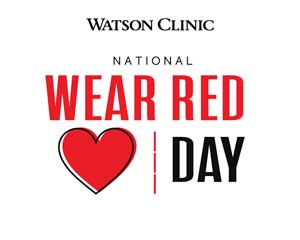
Heart disease is the No. 1 killer of American women – more deadly than all cancers combined – yet many women aren’t aware of the risk factors and symptoms associated with this dreaded condition. Here’s some important information on this much misunderstood disease:
It can happen at any age. While your risk does increase with age, especially after menopause, heart disease can also strike early. Young women who smoke and use birth control pills raise their risk of heart disease by as much as 20 percent. Even if you lead a totally heart-healthy lifestyle, being born with a heart condition or having a family history of heart disease can heighten your risk of heart problems.
It’s important to see your doctor for regular checkups, and to ask about your risks for heart disease.
Exercise Alone Doesn’t Make You Immune. Exercise plays a major role in heart health; physical activity strengthens your heart muscle. The benefits of exercise can be offset by factors like diet, smoking and genetics.
You should build your diet around produce, whole grains, fish and low-fat dairy products, and avoid an abundance of sweets, salt, and fatty or red processed meats. Avoid smoking and work to quit if you currently smoke. You should also work closely with your doctor to monitor your cholesterol, blood pressure and blood sugar levels.
Don't ignore the signs. The most common warning sign for a heart attack in both men and women is chest pain or pressure that lasts more than a few minutes. Women are also more likely to experience shortness of breath, nausea, back or jaw pain, extreme fatigue and cold sweats.
If you have any of these symptoms and suspect a heart attack, you should call 911 right away. The earlier you act, the more heart muscle you can save.
Family history matters. Genetics play a role in assessing heart disease risk. If you had a father or brother with heart disease before the age of 55 or a mother or sister with heart disease before age 65, you are at an increased risk of the disease.
A family history doesn't necessarily mean you'll have it too, but it should encourage you to be proactive in your heart health. Eat better, move more, keep your blood pressure low and shed those extra pounds.
Watson Clinic's Cardiology department consists of the area’s finest board-certified interventional and non-interventional cardiologists and electrophysiologists, all of whom are assisted by a highly experienced assembly of nurses and additional specialists. Call 863-680-7490 to schedule an appointment and visit WatsonClinic.com/Cardiology to learn more about the department.